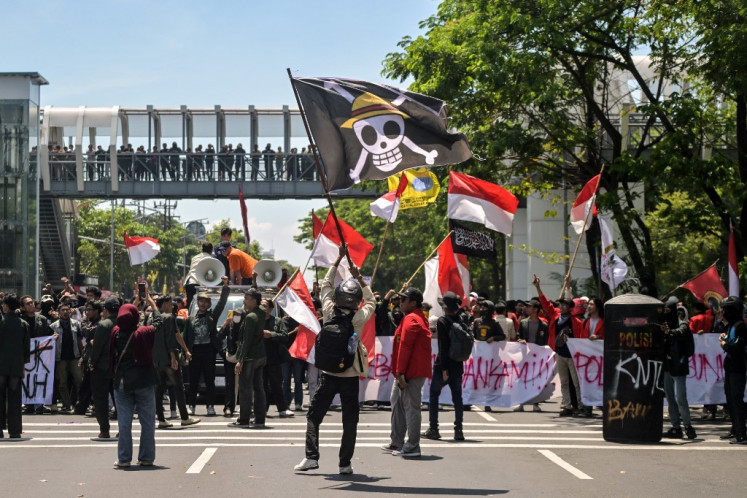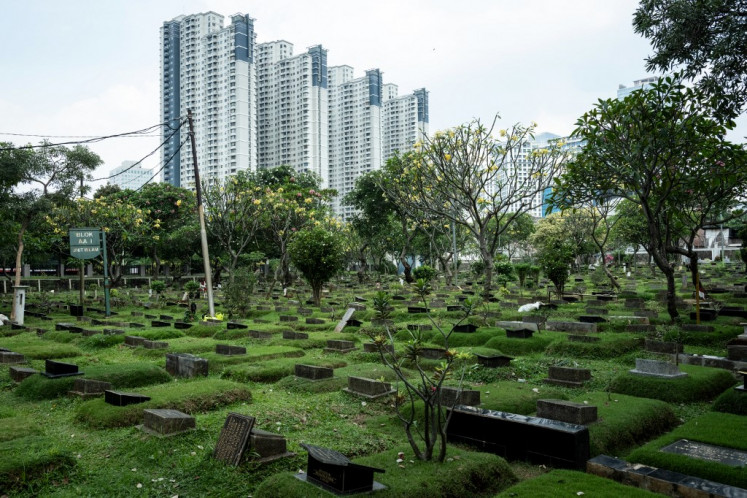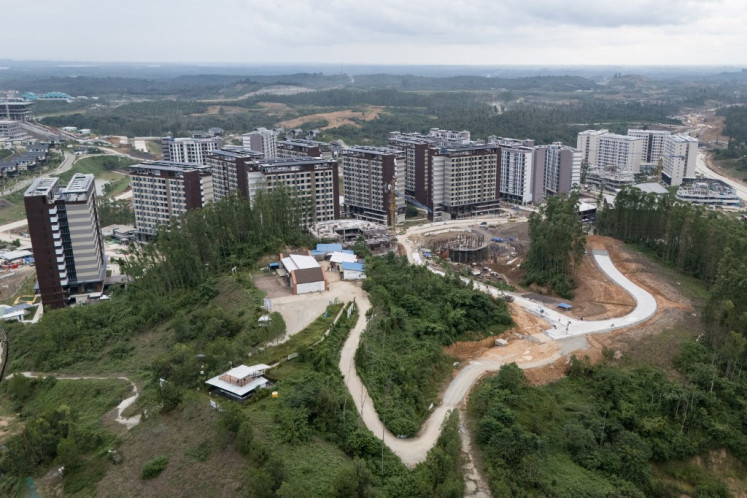Popular Reads
Top Results
Can't find what you're looking for?
View all search resultsPopular Reads
Top Results
Can't find what you're looking for?
View all search resultsThe Ground Zero furor
The widespread American resistance toward proposals to build a Muslim community center and mosque near Ground Zero, is, some note, alarmingly similar to al-Qaeda’s view of the “clash of civilizations”: that there is no such thing as religious harmony
Change text size
Gift Premium Articles
to Anyone
T
he widespread American resistance toward proposals to build a Muslim community center and mosque near Ground Zero, is, some note, alarmingly similar to al-Qaeda’s view of the “clash of civilizations”: that there is no such thing as religious harmony.
To build an Islamic center near the spot where terrorists, who happened to be Muslims, attacked the mighty symbols of the United States, the advocates for the mosque say, serves the very purpose of broadcasting American values through its Muslim community; that Americans respect and accept religious differences; and that Muslims in the US represent an understanding of Islam which abhors violence.
This argument surely makes sense to Muslims getting sick and tired of the image of terrorism now stuck on Islam — and it doesn’t help that few Muslim scholars adequately address the Koranic verses literally mentioning violence that terrorists cite.
Further, look around at our own Muslim leaders and we might feel empathy with Americans’ fears and resentment — especially those who lost loved ones in 9/11.
To voice an unequivocal “yes” to the mosque proposal near Ground Zero would mean having utter faith that all those in charge of the mosque, and mostly those patronizing it, would more or less be “moderate” Muslims, which Feisal Abdul Rauf, the noted New York-based imam enjoying both bad and good publicity for his controversial idea, is supposed to be.
An American of Egyptian descent, he grew up watching his father run the local Muslim communities in New York since the 1960s. While known as “moderate”, Americans still question why Rauf has not denounced Hamas as a terrorist group. This is something Americans find difficult to comprehend, regardless of whether Indonesians are in solidarity with the Palestinians and put the “terrorist” label on both Israel and its ally, the US, where numerous church groups reportedly channel tax-exempted charity to Israeli settlements in Gaza.
Fast forward nine years after that shocking morning in 2001, followed by hundreds of “interfaith dialogues”, and the image of Islam and violence still sticks, regardless of whether we blame the “with us or against us” tactics of the US in the fight against terror.
Indonesian Muslims themselves do not entirely trust our “moderate” leaders, those who claim to represent a peaceful Islamic face from Indonesia. Of course, the problem in persistently showing you are “moderate” is when you harbor political interests, having to be seen pleasing and appeasing the vocal representatives of Islam, who are not so moderate.
How else would the average citizen understand the mind-boggling fact of law enforcers repeatedly failing to stop extremists attacking others of a “different” faith, be they “different Muslims” like the Ahmadiyah members or non-Muslims? On the world stage, President Susilo Bambang Yudhoyono and our other leaders love to boast how peaceful Indonesian Muslims are.
Yet at home, we cringe at every report of a church being sealed or its congregation being attacked while law enforcers look on. We lose count of the number of regencies and provinces which have sharia-inspired legislation, while some Papua regencies have regulations referring to the Bible — obviously thinking if the Muslims can get away with it, so can they.
More governors, mayors and regents may take cue from Home Minister Gamawan Fauzi, who has told this newspaper that there is no problem with local rules referring to religion, as they should only apply to the respective followers. Even if he changes his mind, legally it is now the President who must annul any local rule seen to be violating the Constitution, which means we must wait further for the passing of an umbrella bill on the details of annulling local rules — and brace for further abuse of regional autonomy.
While we rage at Malaysia over border issues, it is alarming that comparatively few feel the nation’s integrity threatened by this unprecedented, willful neglect and even green light to those ready to turn the regions into small theocracies, albeit still at the symbolic level such as through mandatory dress codes.
All this while we claim to be a largely “moderate Muslim” society with our “moderately Muslim” leaders. Despite their popular votes — Yudhoyono is enjoying his second term after being re-elected — they pander to the few vocal Islamic politicians and stall as long as they can to keep from taking action toward those that have crossed the line.
To the extent that many are now unsure where that line is.
How is one expected to view Indonesia as an example of a “moderately Muslim” country, when the government has only spoken out against one sharia bylaw, that of Aceh’s Criminal Code which allows stoning to death for married adulterers.
Our gut feeling is to support those who want a mosque near Ground Zero. Its rejection seems to say indiscriminately, “Sure we accept Muslims in the USA, just stay away from what is considered American holy ground”. That is hurtful.
But such reactions are not entirely surprising, as we watch our own “moderate” leaders continuously failing to speak up against people taking the law into their own hands in the name of Islam; and pretending to forget they carry the popular vote — meaning the public trust — to maintain the legacy of our founding fathers, who carved out the foundations of a diverse nation.
The author is staff writer at The Jakarta Post.










